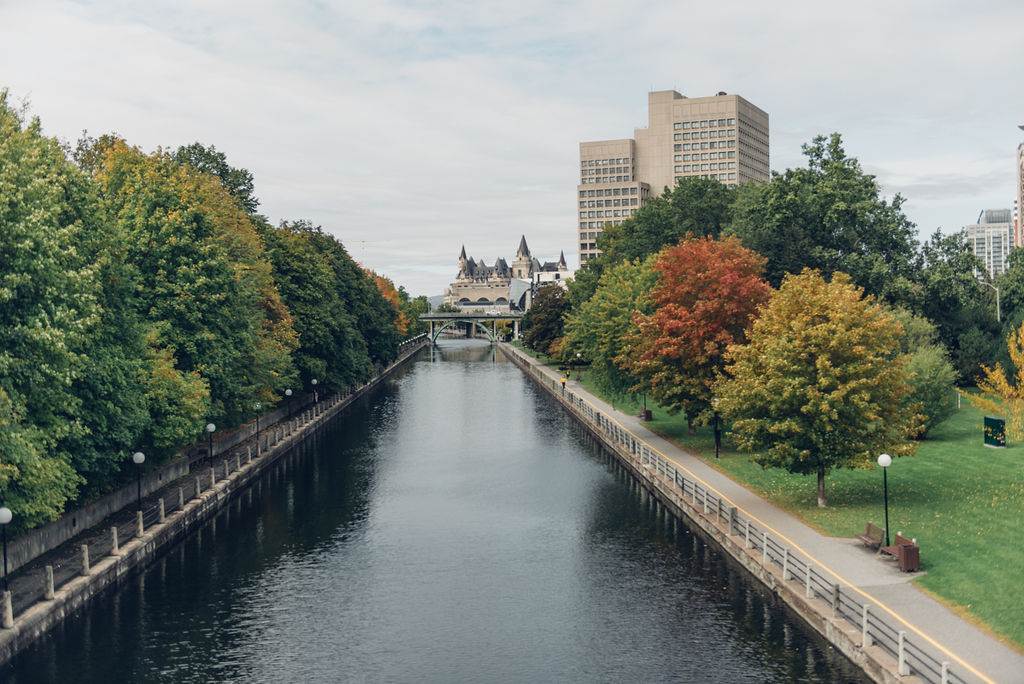Ongoing Projects
Handbook of Critical Public Law
Public law is concerned with the relationship between the state and society. In Canada, this relationship is undergoing a period of significant reinvention, as evidenced, for example, by the movements for reconciliation and Indigenization, the calls to recognize and remedy systemic racism in institutions including police forces, and the recent extension of human rights protections to prohibit discrimination on the basis of gender identity or expression.

We are in a moment in which claims that challenge the normative foundations of the discipline of public law itself are being made in real time: claims about citizenship, rights, and access to resources and benefits; claims about what substantive and procedural fairness look like, and for whom; claims about the state’s obligations to proactively address both historical and current injustices and the limits of approaches that centre the state; and challenges to underlying assumptions about the state itself.
Edited by Professors Karen Drake, Kyle Kirkup, Anne Levesque, Jena McGill and Joshua Sealy-Harrington, the Handbook of Critical Public Law will be an open-access volume that takes an expansive, interdisciplinary approach to topical public law issues and grapples with the evolving relationship between the state and society. In doing so, the Handbook will fill a gap in existing Canadian public law literature, which tends to maintain a separation between traditional, largely liberal, public law scholarship and more critical perspectives, such as decolonial and Indigenous legal theory, critical race theory, feminisms, intersectionality, queer theory, and critical disability theory. This collection aims to bridge that divide by highlighting critical theories as not only relevant, but imperative, to robust, fully contextualized understandings of public law topics.
The Alex Trebek Forum for Dialogue Water Law and Governance Project
Fresh water, humankind’s most precious natural resource, is largely unregulated and depleting rapidly. The climate crisis will exacerbate these difficulties in the coming years. Addressing groundwater depletion is particularly urgent. Fifty percent of the world depends on groundwater for drinking water, but by 2030, the planet will face a 40 per cent shortfall in water supply unless management of this resource is drastically improved. Canadian experts have repeatedly called for a national strategy on water.

As consultations are taking place on the creation of a Canada Water Agency, now is key moment to critically examine existing policies on the management, preservation and regulation of water in Canada.

Working with the Centre on Governance and the Centre for Environmental Law and Global Sustainability, and funded by the Smart Changes for a Better World initiative of the Alex Trebek Forum for Dialogue, the Water Law and Governance Project seeks to foster exchange between scholars, governmental actors, interest groups and the general public to identify and respond to key water-related public policy concerns.
Led by Professor Marie-France Fortin, the project team will seek to develop multi-level policies and model regulations aimed at the sustainable management of freshwater resources
Judging Equality Judgments: (De)Coding the Court: Legal Data Insights into Canada’s Supreme Court
The Supreme Court of Canada is a central institution in Canadian law and politics, and yet to date, there has been relatively little empirical research on its work. Led by Professor Carissima Mathen, Judging Equality Judgments: (De)Coding the Court: Legal Data Insights into Canada’s Supreme Court is a project that uses state-of-the-art legal data analytics (LDA) to investigate Supreme Court of Canada decisions.

The project differs from previous kinds of empirical work. In addition to coding variables and running regressions statistical analyses, LDA builds on the long-standing practice of lawyers: investigating legal texts in depth. Computational legal scholars leverage data analysis, including natural language processing and network analysis, to study legal materials, creating new scope and depth for legal inquiry.
The project team is led by Professor Carissima Mathen. She is joined by Professor Wolfgang Alschner, a pioneer in the application of data analytics to the empirical study of law and head of the Legal Technology Lab, Professor Vanessa MacDonnell, Co-Director of the uOttawa Public Law Centre, Professor Terry Skolnik, Co-Director of the uOttawa Public Law Centre and Stephen Bindman, Visiting Professor.
The team created a database of over 4,000 Supreme Court decisions from 1975 to the end of 2021. Guided by both data and informed doctrinal analysis, the team is tackling various aspects of the Court’s complex body of jurisprudence. The project’s first milestone is an exciting forthcoming volume from Routledge. The book shows how the combination of data science with doctrinal and normative analyses can create new insights into core questions of interests to legal scholars, political scientists, and practitioners; and can inform the study of apex courts more generally.
Criminal Law Workshop Series
Each week, a different criminal law professor presented a draft article or book chapter on Zoom and received feedback from participants. This semester’s guests included Mugambi Jouet (USC), François Tanguay-Renaud (Osgoode Hall), Danardo Jones (Windsor) Lisa Kerr (Queen’s University), Ben Ewing (Queen’s University), Ryan Liss (Western), Terry Skolnik (uOttawa), Sylvia Rich (uOttawa), and Maria Dugas (Dalhousie), Danardo Jones (University of Windsor), Debra Parkes (UBC), Janine Benedet (UBC), Graham Mayeda (uOttawa), and Sarah-Jane Nussbaum (University of New Brunswick).
Commemorative Naming Directed Research Course
Municipal landmarks such as pools, arenas, community centres, stadiums, parks, streets and libraries shape the landscape of everyday urban life. Indeed, the way we name public spaces says as much about the identity and memory of our cities as it does about the symbolic infrastructure of public spaces. For marginalized groups, their inclusion in the topography of Canada’s major cities has emerged as a form of transformative justice from which many re-naming campaigns have emerged.

In October 2020, the name John A. Macdonald was removed from Queen’s Faculty of Law. In June 2017, Prime Minister Justin Trudeau announced the re-naming of the historic Langevin Block. Both re-namings were the result of these historical figures’ associations with residential schools and Indigenous assimilation policies.
Over the past decades, commemorative naming has been studied almost exclusively by geographers, anthropologists, historians, linguists, urban planners and political scientists. This directed research course, led by Professor Vanessa MacDonnell, Co-Director of the uOttawa Public Law Centre, and Stéphanie Plante, considers the role of law in the commemorating naming process. This directed research course will produce background papers comparing commemorative naming procedures and laws in Canada’s major cities and suggesting improvements to these policies. It also includes an applied component, with students working actively on a commemorative naming initiative.